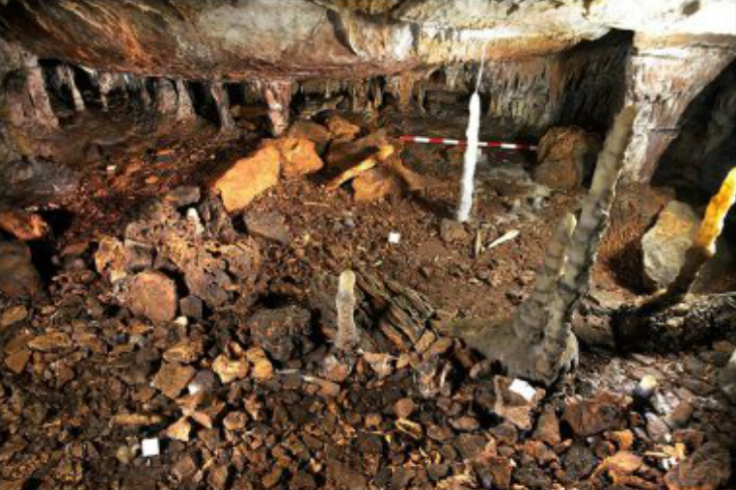Our ancestors hunted gigantic cave lions for their fur up to 40,000 years ago
Evidence that humans skinned lions and used their furs in rituals has been found in Spanish cave.
Early humans from the Upper Palaeolithic era (beginning 40,000 years ago) hunted cave lions for their fur, scientists have said. This practice may have contributed to the demise of the Eurasian cave lion, which became extinct some 14,000 years ago.
Previous archaeological evidence recovered from caves across Europe and Asia had already suggested that skinning and exploitation of small and larger carnivores' pelts had taken place at the time. However, the evidence that humans hunted the Eurasian cave lion – one of the largest species of lion ever to have lived – remained limited.
The authors of this study, published in PLOS ONE, wanted to investigate the question further and to find out more about the causes of the disappearance of this iconic species.
Skinning technique
The team from the University of Cantabria in Spain worked in a cave known as La Garma in the north of the country. The site, discovered in 1995, is particularly important to archaeologists because the original Palaeolithic floors are preserved.

In it, the researchers looked for evidence of cave lion exploitation by humans. They identified nine skeletal remains belonging to a single cave lion and found that the majority of these bones appeared to have been worked on with stone tools. Some of these bones appeared to have been toe bones.
Traces and cut marks left by the tools on the bones suggest a technique that is related to the one used by today's hunters when they skin their prey – the way they do it allows them to keep the animal's claws attached to the fur.
The study indicates that the toe bones that were analysed may have been part of a single lion pelt, which possibly lay on the floor of the cave when it was occupied by humans. It is interesting to note that La Garma is known to have been associated with ancient rituals – so these cave lion parts may have served a symbolic purpose during such rituals.
This is further confirmed by the fact that remains were only found for one animal, suggesting that cave lion hunting was a rare event, that would have occurred on a special occasion.
Nevertheless, the hunting of Eurasian cave lions, a practice which went on for many years, may have been a factor in their progressive disappearance and eventually in their extinction.
© Copyright IBTimes 2025. All rights reserved.






















